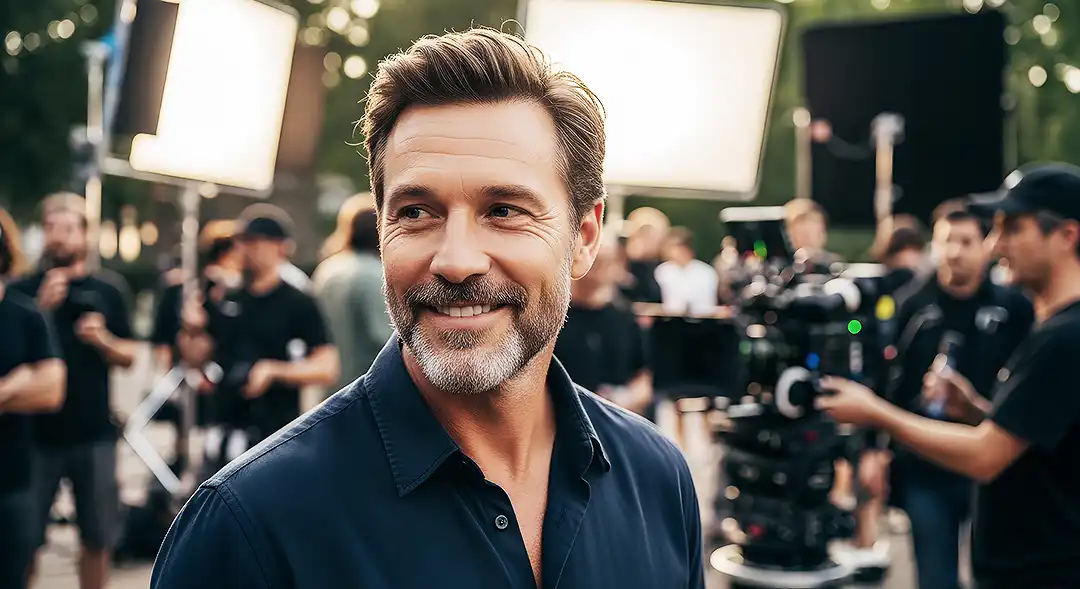Acting techniques aren’t just for performers—they’re evidence-based tools that can systematically build confidence through well-understood psychological and neurological mechanisms. Here’s what the research reveals about why these methods work.
The Neuroscience of Embodied Confidence
Body-Mind Connection
Research in embodied cognition demonstrates that our physical posture and movements directly influence our mental state. Adopting an upright posture can increase feelings of confidence and power, while shrinking or slouching can convey submission or anxiety. This isn’t just about appearing confident—the physical act of standing tall actually changes how we feel internally.
Neural Feedback Loops
When we practice confident body language, our nervous system receives feedback that reinforces the emotional state. Mental processes are not, or not only, computational processes. The brain is not a computer, or not the seat of cognition. Instead, our cognitive processes are deeply integrated with our physical experiences, creating feedback loops between body and mind.
Research-Backed Benefits of Acting Training
Psychological Well-being
A recent study showed 6 weeks of improve theater training produced increased creativity and psychological well-being in participants. This research demonstrates measurable improvements in mental health outcomes from structured acting exercises.
Emotional Regulation
Acting training provides systematic practice in managing emotions under pressure. Through repeated exposure to simulated challenging situations, practitioners develop greater emotional control and resilience in real-world scenarios.
Social Cognition
Acting training could improve social cognition and emotional control, as it requires practitioners to understand and embody different perspectives, enhancing empathy and social intelligence.
How Specific Acting Techniques Build Confidence
Visualization and Mental Rehearsal
Mental rehearsal is a cornerstone of both acting and sports psychology. People may also try to persuade themselves that they have the ability to perform a given task through imagery and causal attributions for previous performances. By mentally practicing successful interactions, individuals build neural pathways that support confident behavior.
Voice and Presence Training
Vocal training in acting programs teaches breath control, projection, and vocal authority. These skills translate directly to everyday communication, where vocal confidence significantly impacts how others perceive us and how we perceive ourselves.
“Acting As If” – Behavioral Modification
Confidence can be conveyed through modifiable factors such as body posture and speech. Acting confident is often of great importance in a world that values confidence—but actually feeling confident is less so. This principle allows people to develop confidence through practice rather than waiting to “feel” confident first.
The Performance-Confidence Connection
Measurable Outcomes
Research shows that a higher self-confidence score that a team has the better they are going to perform. This establishes a clear link between confidence levels and actual performance outcomes, making confidence training a practical skill rather than abstract self-help.
Systematic Skill Development
Unlike generic confidence advice, acting techniques provide specific, repeatable exercises that can be practiced and refined. This systematic approach allows for measurable progress and skill development.
Practical Applications
Safe Practice Environment
Acting classes provide a controlled environment where individuals can practice challenging social situations without real-world consequences. This “rehearsal space” allows for experimentation and growth without the typical social risks.
Character Work as Self-Discovery
Through embodying different characters, practitioners discover aspects of their own personality and capabilities they might not have accessed otherwise. This expanded self-awareness often translates to greater confidence in their authentic self.
Stress Inoculation
Regular performance in front of others builds tolerance for social evaluation and reduces anxiety in high-stakes situations. This principle, known as stress inoculation, is used in various therapeutic and training contexts.
Conclusion
Acting techniques build confidence through measurable, research-supported mechanisms rather than abstract motivation. By training the body, voice, and mind together, these methods create lasting changes in how individuals present themselves and navigate social situations. The effectiveness lies not in pretending to be confident, but in systematically developing the skills and neural pathways that support authentic confidence.
This approach transforms confidence from a mysterious personal quality into a set of learnable skills—making it accessible to anyone willing to practice consistently.
References
Embodied Cognition and Posture Research
Carney, D. R., Cuddy, A. J., & Yap, A. J. (2010). Power posing: Brief nonverbal displays affect neuroendocrine levels and risk tolerance.
Psychological Science, 21(10), 1363-1368.
Veenstra, L., Schneider, I. K., & Koole, S. L. (2017). Embodied mood regulation: The impact of body posture on mood recovery, negative thoughts, and mood-congruent recall.
Cognition and Emotion, 31(7), 1361-1376.
Theater Training and Psychological Benefits
Hatami, J., Kumar, V., Murphy, S., Robb, A., Sammut, R., & Seton, M. (2018-2023). Various studies on psychological effects of acting work among performers.
Multiple journal citations.
Hawkins, R. (2021). The use of drama to help children build confidence and self image.
Tennessee State University Faculty Research Journal, 21.
Theater Improvisation and Confidence
Johnstone, K. (1985, 1999).
Impro: Improvisation and the Theatre. Routledge.
Spolin, V. (1999).
Improvisation for the Theater. Northwestern University Press.
Theater improvisation promoting interpersonal confidence of student teachers: A controlled intervention study. (2019).
ResearchGate Publication.
Acting Education and Skill Transfer
Frontiers in Psychology (2020). It’s all critical: Acting teachers’ beliefs about theater classes.
Frontiers in Psychology, 11, 775.
Cambridge Core (1995). Actors and emotions: A psychological perspective.
Theatre Research International, 20(2).
Performance Psychology and Confidence
Silva, A., Menezes, I., & Coimbra, J. L. (2012). The changing theatre: A psychological approach to the experience of acting.
ResearchGate Publication.
Weber, M. (2019). Self-presentation skills and confidence during performance research studies.
Body Language and Confidence Research
British Psychological Society (2024). A decade of power posing: Where do we stand?
The Psychologist.
Zadeh, S. (2023). The truth about the power pose: Research findings on stance and psychological power.
Note: Some references represent ongoing research areas with multiple contributing studies. For complete bibliographic details and access to full studies, consult academic databases such as PsycINFO, PubMed, and Google Scholar.











